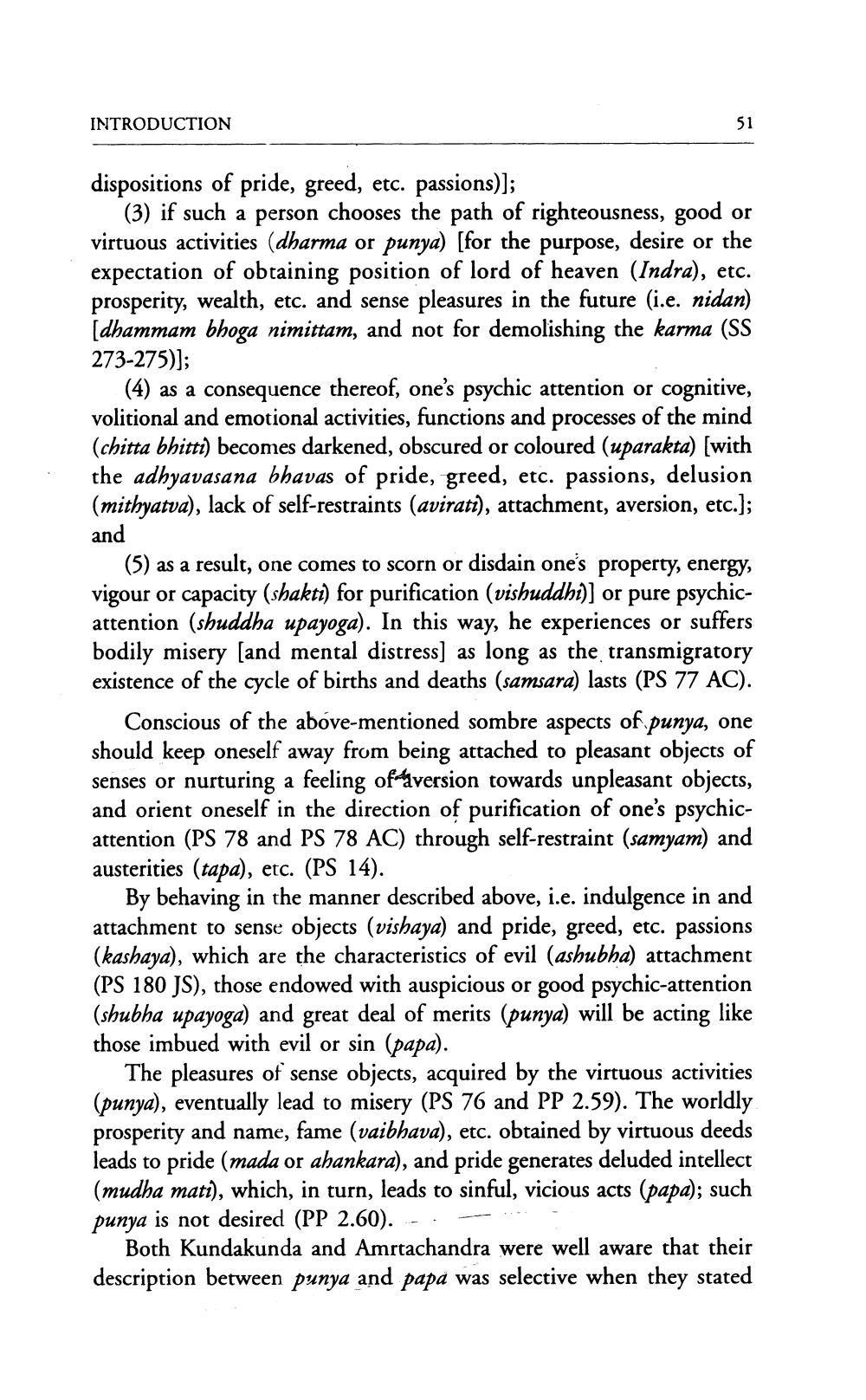________________
INTRODUCTION
dispositions of pride, greed, etc. passions)];
(3) if such a person chooses the path of righteousness, good or virtuous activities (dharma or punya) [for the purpose, desire or the expectation of obtaining position of lord of heaven (Indra), etc. prosperity, wealth, etc. and sense pleasures in the future (i.e. nidan) (dhammam bhoga nimittam, and not for demolishing the karma (SS 273-275)];
(4) as a consequence thereof, one's psychic attention or cognitive, volitional and emotional activities, functions and processes of the mind (chitta bhitti) becomes darkened, obscured or coloured (uparakta) (with the adhyavasana bhavas of pride, greed, etc. passions, delusion (mithyatva), lack of self-restraints (avirati), attachment, aversion, etc.);
and
(5) as a result, one comes to scorn or disdain one's property, energy, vigour or capacity (shakti) for purification (vishuddhi)] or pure psychicattention (shuddha upayoga). In this way, he experiences or suffers bodily misery (and mental distress] as long as the transmigratory existence of the cycle of births and deaths (samsara) lasts (PS 77 AC).
Conscious of the above-mentioned sombre aspects of punya, one should keep oneself away from being attached to pleasant objects of senses or nurturing a feeling of Aversion towards unpleasant objects, and orient oneself in the direction of purification of one's psychicattention (PS 78 and PS 78 AC) through self-restraint (samyam) and austerities (tapa), etc. (PS 14).
By behaving in the manner described above, i.e. indulgence in and attachment to sense objects (vishaya) and pride, greed, etc. passions (kashaya), which are the characteristics of evil (ashubha) attachment (PS 180 JS), those endowed with auspicious or good psychic-attention (shubha upayoga) and great deal of merits (punya) will be acting like those imbued with evil or sin (papa).
The pleasures of sense objects, acquired by the virtuous activities (punya), eventually lead to misery (PS 76 and PP 2.59). The worldly prosperity and name, fame (vaibhava), etc. obtained by virtuous deeds leads to pride (mada or ahankara), and pride generates deluded intellect (mudha mati), which, in turn, leads to sinful, vicious acts (papa); such punya is not desired (PP 2.60). -.
Both Kundakunda and Amrtachandra were well aware that their description between punya and papa was selective when they stated




